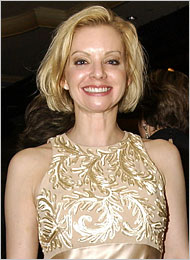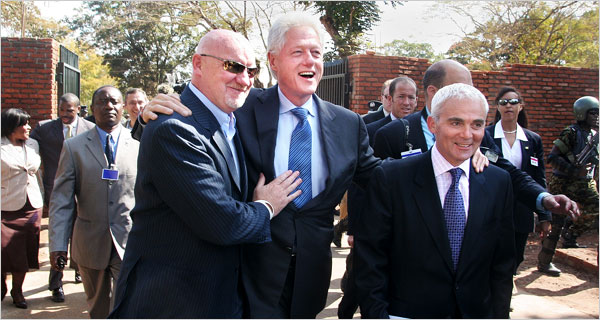 “Early in Senator John McCain’s first run for the White House eight years ago, waves of anxiety swept through his small circle of advisers. A female lobbyist had been turning up with him at fund-raisers, visiting his offices and accompanying him on a client’s corporate jet. Convinced the relationship had become romantic, some of his top advisers intervened to protect the candidate from himself — instructing staff members to block the woman’s access, privately warning her away and repeatedly confronting him, several people involved in the campaign said on the condition of anonymity.“
“Early in Senator John McCain’s first run for the White House eight years ago, waves of anxiety swept through his small circle of advisers. A female lobbyist had been turning up with him at fund-raisers, visiting his offices and accompanying him on a client’s corporate jet. Convinced the relationship had become romantic, some of his top advisers intervened to protect the candidate from himself — instructing staff members to block the woman’s access, privately warning her away and repeatedly confronting him, several people involved in the campaign said on the condition of anonymity.“
Remember the hubbub back in December over a spiked NYT story about John McCain and some lobbyist shenanigans? Well, it finally dropped, and it involves possible favorable treatment for — and a possible romance with — a young female telecom lobbyist, Vicki Iseman (who, it must be said, looks eerily like Cindy McCain.) “In interviews, the two former associates said they joined in a series of confrontations with Mr. McCain, warning him that he was risking his campaign and career. Both said Mr. McCain acknowledged behaving inappropriately and pledged to keep his distance from Ms. Iseman.” So there’s definitely smoke, but is there fire? This story doesn’t quite stick the landing on either the romance (both parties deny it, although they did seem to spend some time together) or the lobbyist favors (it does mention McCain urging the FCC in 1999 (before my time there) to back an Iseman client, Paxson Communications, at her request, and it rehashes McCain’s involvement with the Keating 5.) But perhaps there’s more to the story? If there isn’t, I don’t really see this having legs. Update: The WP follows up with their own version, which notes that Iseman used to tout her McCain connections to other lobbyists. Still no smoking gun, tho’.
Update: The McCain campaign has responded here, calling the piece a “hit and run smear campaign.” (This response, however, sidesteps the question of a possible affair. For what it’s worth, McCain has admitted to extramarital affairs during his first marriage. And, while he voted to convict Bill Clinton during the impeachment fiasco, he also said then that “I do not desire to sit in judgement of the President’s private misconduct. It is truly a matter for him and his family to resolve…I have done things in my private life that I am not proud of. I suspect many of us have.“)
Update 2: It looks like release of the NYT piece was prompted by a TNR story about the Grey Lady holding back, which [Updated] came out today. (Apparently, other news outlets have been chasing the story too.) In the meantime, we can content ourselves with a better documented, albeit less sexy, McCain scandal, namely his obvious gaming of the public financing system: “What we know is that McCain found a way to use the public funds as an insurance policy: If he did poorly, he would use public funds to pay off his loans. If he did well, he would have the advantage of unlimited spending. There’s a reason no one’s ever done anything like this. It makes a travesty of the choice inherent in voluntary public financing, between public funds and unlimited spending…Legal or not, it should bring to an end whatever tiny thread of credibility John McCain still has as a straight-talker or reformer of the political process.“



